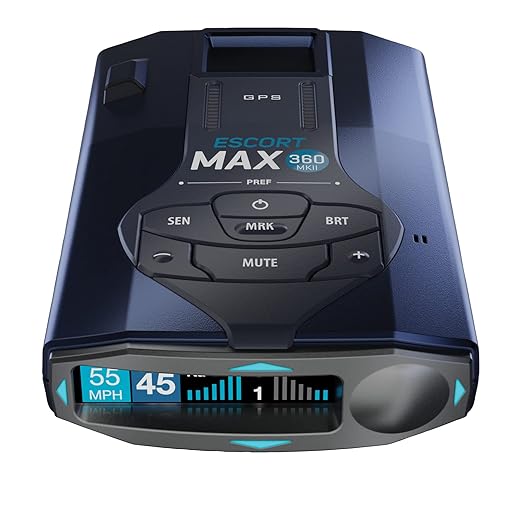








Understanding Radar Detector Laser Detection: Common Issues and Solutions
In the age of smart technology, radar detectors have become invaluable tools for drivers. They help detect speed traps and keep us informed about our surroundings. However, laser detection—a crucial feature of many modern radar detectors—can be a bit tricky. Understanding the common issues and solutions related to laser detection can enhance your driving experience and keep you safe on the roads.
What is Laser Detection in Radar Detectors?
Before diving into the issues, let’s clarify what laser detection actually entails. Radar detectors are designed to identify radar signals emitted by law enforcement. However, laser guns work differently. They send out a focused beam of light that can measure your speed almost instantaneously. If you’re caught in the beam, it’s often too late for a radar detector to alert you.
Think of it this way: while radar is like a wide net cast into the ocean, laser detection is more akin to a sniper taking a precise shot. This difference in technology leads to specific challenges for drivers relying on radar detectors equipped with laser detection capabilities.
Common Issues with Laser Detection
1. **Limited Range**
The most significant limitation of laser detection is its short range. Unlike radar, which can pick up signals from a distance, lasers are highly focused. This means that by the time you receive an alert, the officer may have already clocked your speed. Ever played a game of hide and seek? The closer you are to the seeker, the harder it is to escape.
2. **False Alerts**
If you’ve ever been driving and received a false alert from your radar detector, you know how frustrating it can be. Laser detectors can sometimes mistake other light sources, such as traffic signals or streetlights, for laser signals. It’s like mistaking a flashlight for a laser gun—confusing and misleading.
3. **Mounting Location**
The placement of your radar detector can significantly affect its performance. If mounted incorrectly—say, obstructed by your windshield or situated too low—it may not detect laser signals effectively. Consider it like trying to hear a whisper in a crowded room; if you’re not positioned correctly, the message gets lost.
4. **Sensitivity Settings**
Most radar detectors allow users to adjust sensitivity settings. If set too high, you might experience a barrage of false alarms. Set too low, and you could miss critical alerts. Finding the right balance is akin to tuning a musical instrument; it requires patience and fine-tuning to achieve that perfect sound.
Solutions to Common Laser Detection Issues
1. **Invest in Quality Equipment**
Not all radar detectors are created equal. Investing in a high-quality detector with advanced laser detection capabilities can make a significant difference. Look for models that utilize multiple laser sensors. Just like a well-trained team of detectives, the more eyes you have on the scene, the more likely you are to catch the culprit.
2. **Optimal Mounting Position**
To maximize the effectiveness of your detector, mount it in a location that provides an unobstructed view of the road ahead. Typically, the center of your windshield, just behind the rearview mirror, is the best spot. This placement ensures that your device has a clear line of sight, much like a lookout tower surveying the horizon.
3. **Regular Updates**
Many radar detectors require firmware updates to improve performance and add new features. Make it a habit to check for updates regularly. Think of it as maintaining a garden; regular care and attention yield better results.
4. **Utilizing Laser Jammers**
For those who want to take their defense to the next level, consider investing in a laser jammer. These devices can send out a signal that confuses the laser speed gun, giving you extra time to react. However, be aware of the legality of laser jammers in your area—much like knowing the rules of a game before playing.
Conclusion
Understanding the intricacies of radar detector laser detection is crucial for any driver looking to maintain safety on the road. By being aware of the common issues and implementing the suggested solutions, you can enhance your driving experience and stay one step ahead of potential speed traps. Remember, knowledge is power, and in this case, it can also save you from an unwelcome ticket.
FAQs
1. Are laser detectors worth the investment?
Absolutely! While laser detection has limitations, a good quality radar detector can provide valuable alerts and enhance your situational awareness on the road.
2. Can I use a radar detector in all states?
Not all states allow the use of radar detectors. Always check your local laws to avoid fines.
3. What is the difference between radar and laser speed detection?
Radar uses radio waves to measure speed over a distance, while laser uses focused light beams for instantaneous speed readings. The technology and detection methods differ significantly.
